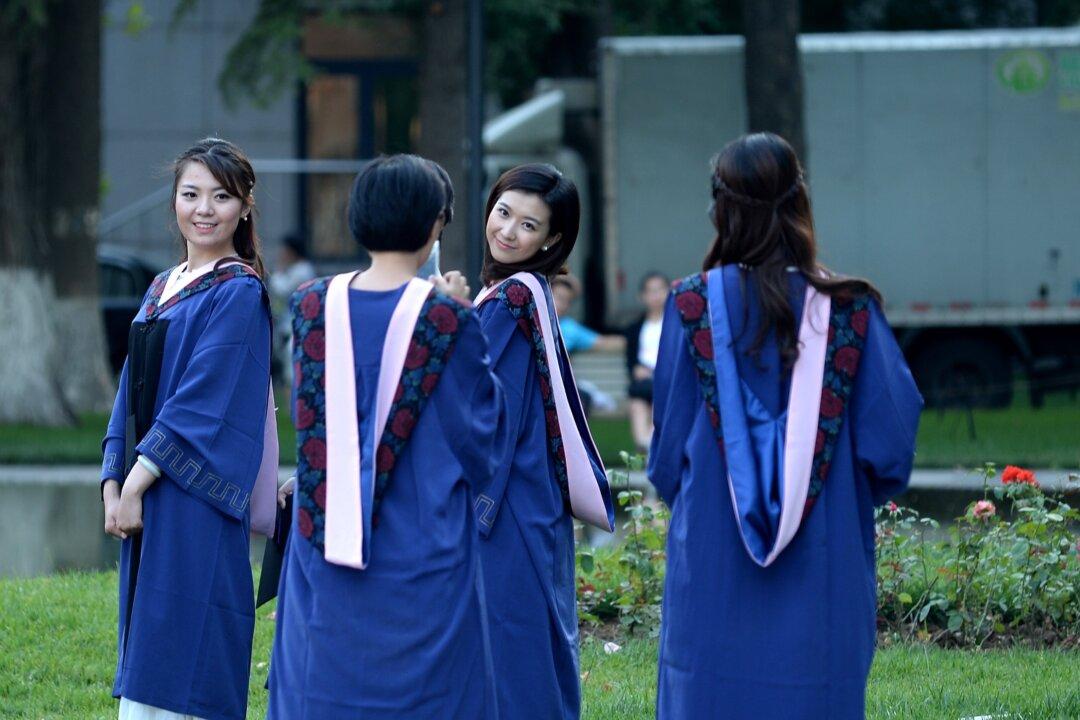A 20-year-old female Chinese international student at Carnegie Mellon has said she received threats after she voiced criticism of the university’s Chinese Student Association (CSA) for its insensitive promotion of a violent video game in the wake of the Pittsburgh synagogue shooting.
The Carnegie Mellon CSA and equivalent Chinese student groups in foreign universities referred to collectively as Chinese Students and Scholars Associations (CSSAs) are controlled by the Chinese communist regime’s consular organizations.
In the morning of Oct. 27, shooter Robert Bowers yelled anti-Semitic epithets and shot multiple people at the Squirrel Hill Synagogue, which is located close to Carnegie Mellon University and the 20-year-old’s apartment. Eleven people were murdered in the shooting.
The cognitive science major, who responded to questions via Facebook under the alias of “Sparklegoose,” said she was shocked by the event, as were her instructors, who cut classes short in mourning on Oct. 29. Sparklegoose expressed her sympathy for the local Jewish community in social media posts and emails to her peers.
“Seeing the [instructors] I respect and revere in such deep mourning was a big blow for me,” she wrote in one of her posts.
That afternoon, however, the university’s Chinese Student Association (CSA) ran a social media promotion for a video game called “Werewolf Killing,” which struck Sparklegoose as particularly insensitive, given the bloodbath that had just taken place.
‘You Can’t Talk This Way in Your Friends Circle’
The day after Sparklegoose made her post, a friend asked to talk face-to-face about her “very interesting” opinion. The two arranged to meet on Nov. 1.When they met, the friend revealed himself to be a member of the CSA and said there were two other people who wanted to speak with her. As they walked, the friend told Sparklegoose, “I just hope you won’t make any trouble.”
The talk was moved to a meeting room, rather than a casual venue. The two others present at the meeting were the CSA chairman at Carnegie Mellon and a senior CSA member studying as a fifth-year-student in the school’s Department of Architecture.
For the next hour, the three CSA members admonished the young woman for her online behavior and demanded her apology. “This is really improper,” they told her. “You can’t talk this way in your friends circle.”
During the meeting, the three also slandered the concept of freedom of speech.
Sparklegoose’s experience has highlighted the extent of ideological control over Chinese overseas students. Apart from receiving threats or being “invited to drink tea”—a euphemism to describe being put on notice for one’s politically sensitive expressions or activities—being a matter of course in mainland China, having one’s basic rights of expression curtailed while living in the United States is a less common but ever-present possibility for Chinese international students.
On May 21, 2017, Chinese student Yang Shuping praised the American freedoms of speech and democracy in her commencement speech at the University of Maryland. She was then criticized by Chinese media, as well as the CSSA. Her parents, living in China, were condemned in public, compelling Yang to make an open apology.
The Chinese Communist Party’s coercive influence on Chinese international students is being increasingly recognized.
“There are more than 150 (CSSA) branches across America’s campuses. These groups help organize social events for some of the more than 430,000 Chinese nationals studying in the United States. They also alert Chinese consulates and embassies when Chinese students, and American schools, stray from the Communist Party line.”
Sparklegoose said the meeting with the CSA members changed her, but she would continue to stand up for herself and her opinions.





